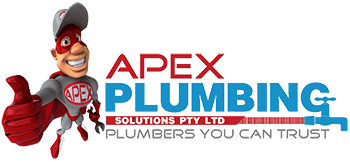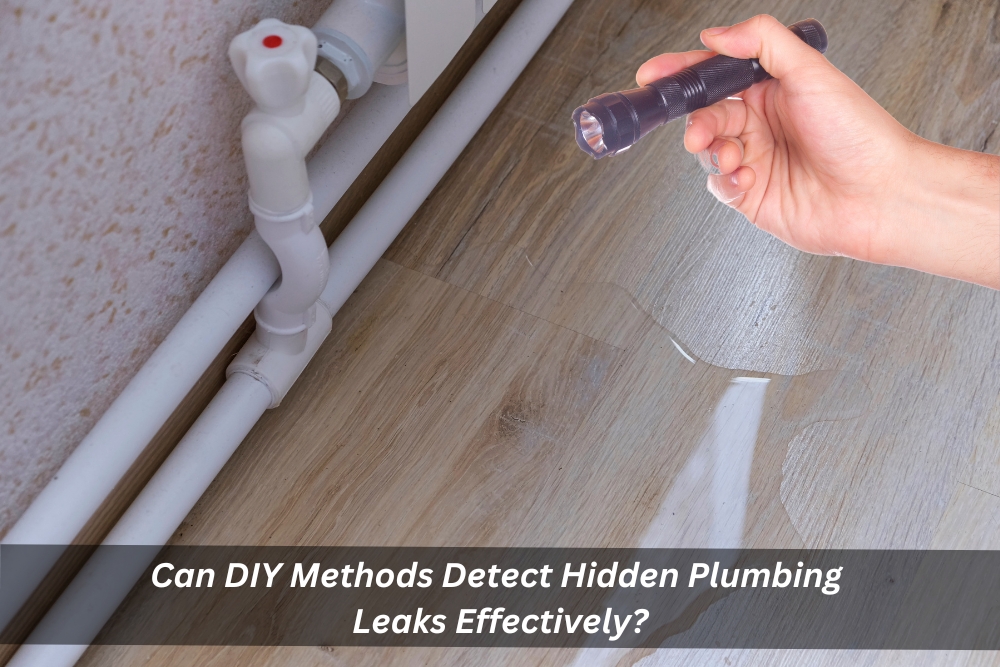When it comes to plumbing issues, hidden leaks can be a homeowner’s worst nightmare. They often go unnoticed until they’ve caused significant damage, leading to costly repairs. However, the good news is that with the right knowledge and tools, you can perform effective DIY plumbing leak detection to identify hidden leaks. In this article, we’ll explore the signs of a hidden plumbing leak, the effectiveness of DIY approaches, other methods to detect these leaks, their limitations, when to call a professional plumber for plumbing leak detection, and how you can prevent plumbing leaks.
What are the signs of a hidden plumbing leak?
Before delving into DIY methods, it’s essential to know how to identify the signs of a hidden plumbing leak. Furthermore, being aware of these indicators can help you take early action and prevent extensive damage.
- Water bills spike: One of the first signs of a hidden plumbing leak is a sudden increase in your water bill. If your water usage remains consistent, but the bill is climbing, there’s a high chance you leak.
- Mould and mildew: Moist environments are breeding grounds for mould and mildew. So, if you notice these growths on walls, ceilings, or floors in your home, a plumbing leak might be the root cause.
- Musty odours: Hidden plumbing leaks can lead to a musty, unpleasant odour in your home. This smell is often associated with dampness and stagnant water.
- Stains and discolouration: Water stains or discolouration on your walls or ceilings are telltale signs of a leak. Basically, these marks can be yellow or brown and typically expand over time.
- Damaged flooring: Leaking water can cause your flooring to warp or become damaged. If you notice these changes, it’s time to investigate further.
- Low water pressure: A hidden plumbing leak can reduce water pressure in your faucets or shower. So, if you experience a sudden drop in water pressure, it’s worth inspecting for leaks.
- Strange noises: Gurgling or hissing sounds coming from your plumbing can indicate air escaping through a leak. Keep an ear out for any unusual noises.
Are DIY approaches effective in identifying concealed plumbing leaks?
DIY methods, like employing food colouring in the toilet tank, monitoring water meter readings, and inspecting visible pipes for drips or corrosion, can occasionally aid in spotting minor leaks. However, when it comes to identifying a leaky water pipe in the wall or concealed leaks hidden within walls, slabs, or underground, these approaches may not prove to be effective. To accurately detect these elusive leaks, advanced tools such as infrared cameras and acoustic listening devices become crucial, underscoring the importance of seeking professional assistance.
What are some other DIY methods for detecting hidden leaks?
Identifying plumbing leaks hidden from plain view can pose a considerable challenge, yet with the right execution, DIY methods for plumbing leak detection can yield effective results. Here are various techniques you can employ to pinpoint these concealed leaks:
- Visual inspection: Start with a visual inspection of your plumbing. Look for any visible signs of leaks, such as water stains, dampness, or corrosion on pipes.
- Check your water meter: Turn off all water sources in your home and check the water meter. If it continues to move, you likely leak.
- Dye testing: Put a few drops of food colouring in your toilet tank. If the water in the bowl changes colour without flushing, it indicates a leak in the flapper valve.
- Listen for hissing: As mentioned earlier, hissing sounds in your plumbing can be a sign of a concealed leak. Use a stethoscope or simply your ear to locate the source of the noise.
- Paper towel Test: Wrap paper towels around pipes and joints. If they become wet, it’s a sign of a leak.
- Use a thermal imaging camera: If you have access to one, a thermal imaging camera can help identify temperature differences that could point to a hidden leak.
- Pressure testing: If you suspect a hidden leak but can’t locate it, you can perform a pressure test on your plumbing system. Furthermore, this involves pressurising the system and checking for a pressure drop, which would indicate a leak.
- Listen for running water: Turn off all water sources in your home, and then listen for running water. So, if you hear it, you likely leak.
- Take a close look at your walls: If you suspect a leak inside a wall, gently tap it and listen for differences in sound. Additionally, hollow sounds can indicate the presence of water.
What are the limitations of DIY plumbing leak detection?
While DIY methods can help identify plumbing leaks, they come with certain limitations:
- Limited expertise: Most homeowners lack the expertise to diagnose and repair complex plumbing issues.
- Hidden leaks: As the name suggests, hidden plumbing leaks are not easily visible. Detecting them can be a challenge, especially if they are concealed within walls or floors.
- Inaccuracies: DIY methods may not always provide precise results. For instance, visual inspections may not uncover leaks hidden in inaccessible areas.
- Safety concerns: DIY methods can sometimes expose you to risks, such as shutting off water supplies or using tools and chemicals without proper knowledge.
- Temporary fixes: While DIY approaches can help identify leaks, they may not always provide a permanent solution. Generally, professional plumbing expertise is often required for lasting repairs.
When should you call a professional plumber?
Knowing when to call a professional plumber is crucial in preventing extensive damage and ensuring effective repairs. Here are some situations in which it’s best to seek professional help:
- Hidden leaks: If you suspect a hidden plumbing leak that you can’t locate or fix on your own, it’s time to call a professional.
- Major repairs: For complex plumbing issues, such as replacing pipes or reconfiguring your plumbing system, a professional plumber is essential.
- Emergencies: Burst pipes, flooding, or major leaks require immediate attention from a plumber with the expertise and tools to handle the situation.
- Consistent problems: If you experience recurrent plumbing issues, it’s a sign of an underlying problem that a professional plumber can diagnose and address.
- Permits and codes: Plumbing work often requires compliance with local building codes and regulations. Furthermore, professionals are well-versed in these requirements.
- Old plumbing systems: If you have an older home with outdated plumbing, it’s best to have a professional inspect and upgrade your system to prevent future leaks.
How can you prevent plumbing leaks?
Preventing plumbing leaks is the most effective way to avoid costly repairs and water damage. Here are some preventive measures you can take:
- Regular Maintenance: Schedule annual plumbing inspections with a professional to catch minor issues before they become major leaks.
- Monitor Water Pressure: High water pressure can put stress on your pipes. Use a pressure gauge to ensure it’s within the recommended range.
- Insulate Pipes: In cold climates, insulate your pipes to prevent freezing, which can lead to cracks and leaks.
- Be mindful of what you flush: Avoid flushing items that can clog your pipes, such as sanitary products, wipes, or paper towels.
- Address minor issues promptly: Fix dripping faucets and small leaks immediately to prevent them from turning into larger, more damaging problems.
- Upgrade plumbing fixtures: Consider installing low-flow fixtures and efficient appliances. This is to reduce water pressure and minimise the strain on your plumbing system.
Conclusion
In summary, while DIY methods can help identify some plumbing leaks, they might not always be effective for detecting concealed ones. It’s crucial to stay vigilant for signs of leaks and act promptly to prevent extensive damage. However, for complex issues and to ensure long-term solutions, consulting a professional plumber is always the best course of action. By being proactive and taking preventive measures, you can significantly reduce the risk of plumbing leaks and maintain a healthy, functional plumbing system in your home.
If you’ve encountered the signs of a hidden plumbing leak or are facing persistent plumbing issues, it’s time to take action. At Apex Plumbing Solution, our team of experienced professionals is ready to provide the expertise and solutions you need. Don’t let concealed leaks wreak havoc on your home or business – reach out to us today for a comprehensive inspection and effective, long-lasting repairs. We understand the challenges of DIY plumbing leak detection and are here to ensure your peace of mind, offering top-notch services to protect your property from water damage. Trust Apex Plumbing Solution to be your partner in maintaining a leak-free, healthy plumbing system.


